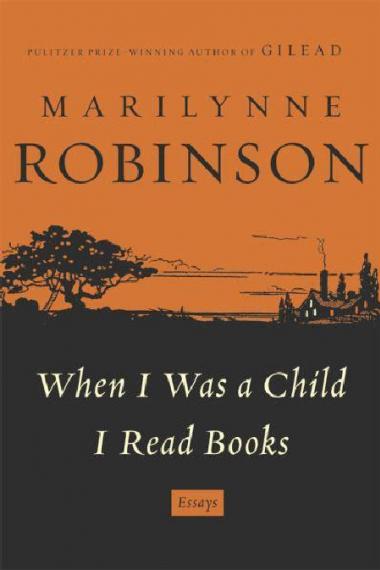Marilynne Robinson is one of America’s most important novelists. What often gets lost in the swooning over her fiction is that she is also one of the country’s most accomplished essayists.
Robinson stepped into the literary limelight in 1980 with the novel Housekeeping, an eerie story of two sisters trying to survive off the geographic and social grid. Gilead (2004), which won the Pulitzer Prize, and Home (2008) provided a fine-grained rendering of the moral and spiritual ruminations of the inhabitants of a fictional Iowa town.
But these works display only a portion of her talents. Robinson has a critical, rigorous mind. She earned a PhD in English from the University of Washington before turning to fiction and eventually taking up a teaching post at the University of Iowa. A dedicated student of ancient religion and literature, she is able to spar with translations from multiple languages. One chapter in her latest collection of erudite, searching essays, When I Was a Child I Read Books, takes contemporary Old Testament scholars to task for their arcane language, superficial analysis, and weakness for the reductive and clever.
While her novels have a timeless quality, Robinson’s nonfiction is pointed and contemporary. This volume, titled after the first sentence of the only memoir-like essay in the collection, provides a brilliant and stirring account of the challenges and gifts of the present moment. In the course of the 10 essays, some of which have previously appeared in literary magazines such as Brick and Salmagundi,she laments the alarmism in American politics and suggests that rhetoric about the U.S. education system’s need to produce workers “is so common among us now that an extraterrestrial might think we had actually lost the Cold War.”
But Robinson is not your standard declinist; gratitude animates her prose. “Considering the overwhelming odds against anyone’s existence, the word ‘miraculous’ is an appropriate superlative,” she writes. How refreshing this perspective is at a time of unchecked gloom. Cast in a political light, her gratitude becomes a kind of patriotism, fueling evenhanded and learned accounts of American achievements in education, politics, and social reform.
This book sheds welcome light on the origins of Robinson’s brand of conviction. For her, 16th-century Christian theologian John Calvin, with his ethic of humility and “nonjudgmental, nonexclusive generosity,” is a guiding star. She argues that the “radical openhandedness” he embraced rooted itself early in American culture, strongly influencing colonial Puritan leaders such as Jonathan Edwards.
Today, Robinson says, American culture and politics conspire with the contemporary economics of self-interest to encourage the public to give first priority to individual needs. The notion of the common good has dissipated, as has an intrinsic respect for fellow citizens. Fiscal challenges have led many Americans to embrace austerity as both a “practical necessity and moral ideal.” Fear, cynicism, and misanthropy are around every turn.
“When we accept dismissive judgments for our community we stop having hopes for it,” Robinson writes. She credits her childhood in the West—she was born in Idaho in 1943—with her appreciation for the “radical singularity” of every human life. In the West, she explains, “lonesome is a word with strongly positive connotations.” It allows a person to appreciate the value of the individual. “When I see a man or woman alone, he or she looks mysterious to me,” she writes, “which is only to say that for a moment I see another human being clearly.”
One comes away from Robinson’s work with the sense that the life of the mind involves empathy and compassion as much as intellect. “When we act consistently with a sense of the character of people in general which demeans them, we impoverish them and ourselves,” she observes. We “preclude our having a part in the creation of the highest wealth, the testimony to the mysterious beauty of life we all value in psalms, tragedies, epics, meditations, short stories, novels.” This sentiment could be improved only by adding to her list the kinds of essays she delivers with this book.

